Graduate students in the Department of English hosted visiting high school students at the Games Institute in a workshop entitled ’60 Minutes to Save the World’ as a part of the Canadian Student Leadership Conference (CSLC), held in Waterloo last week.
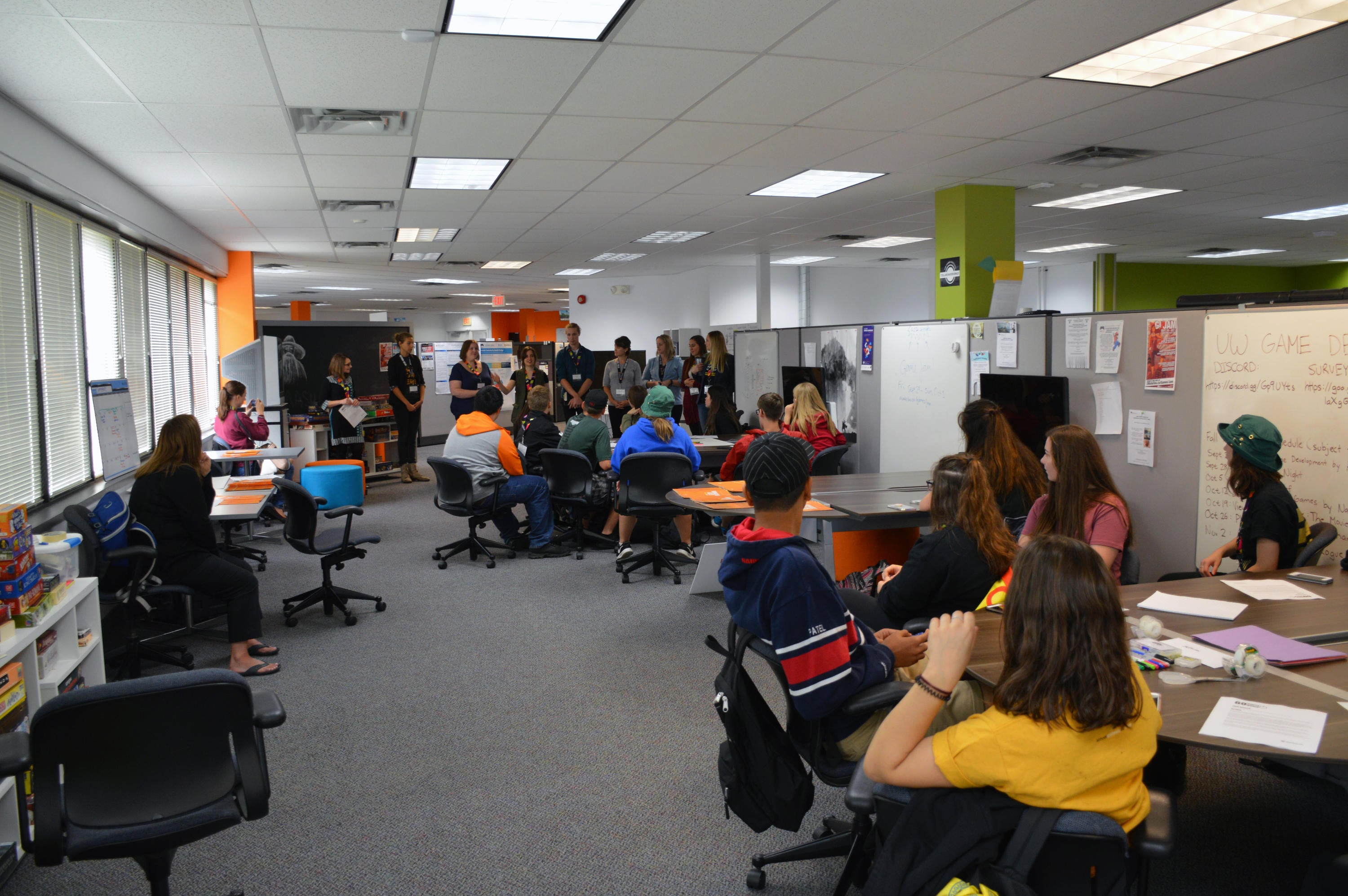
“The students have been outstanding in designing and running this workshop,” says English professor Ashley Rose Mehlenbacher. “This is a fantastic example of the multidisciplinary work taking place in Arts at Waterloo.”
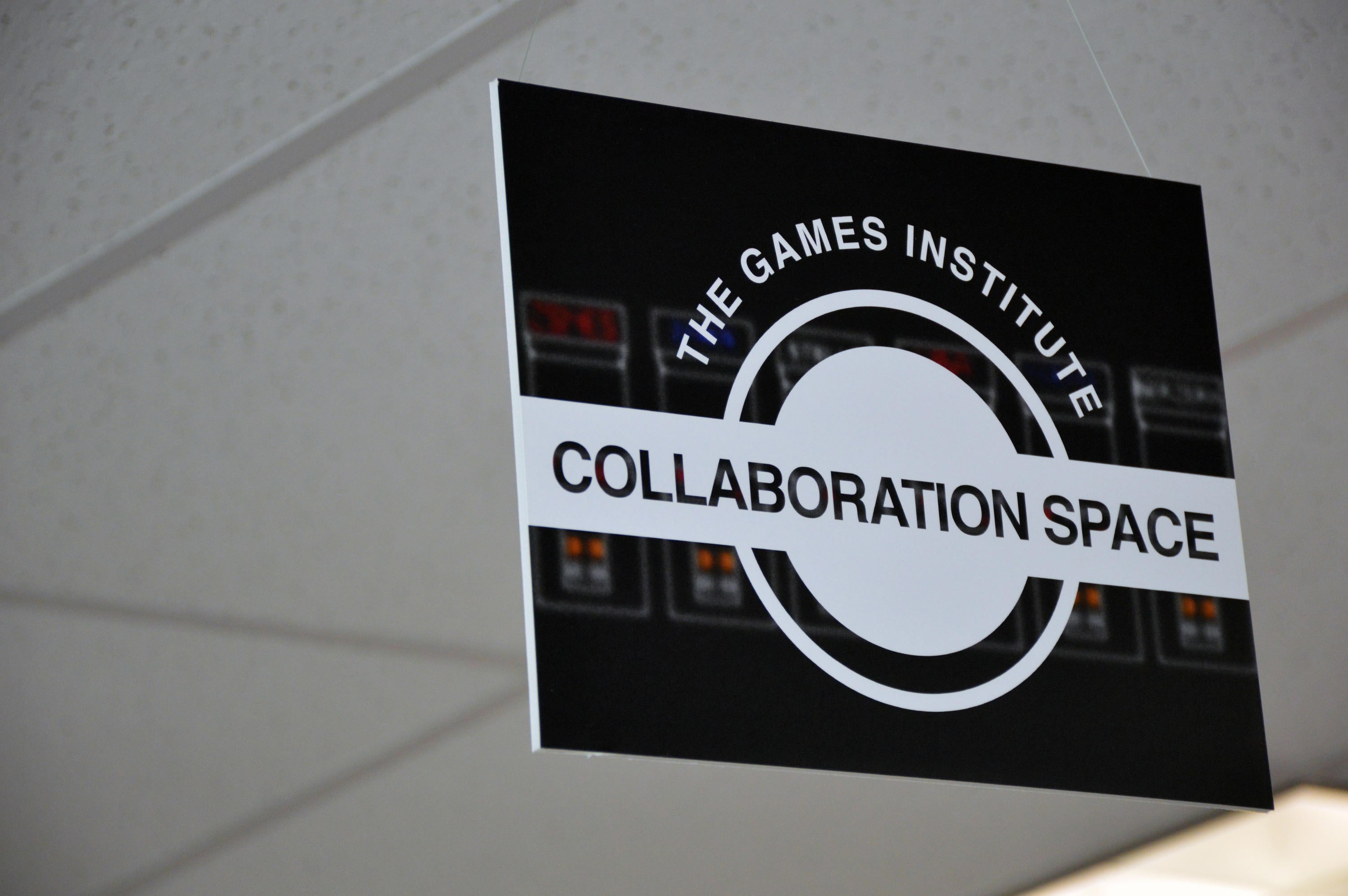
‘60 Minutes to Save the World’ challenged the visiting students to create solutions to large-scale social issues and hypothetical crisis situations. Different stations had the students work with a variety of technologies, from audio and graphic design to augmented reality to LED lights. They went through a design thinking process to critically explore the problem and construct a solution in just under 30 minutes.
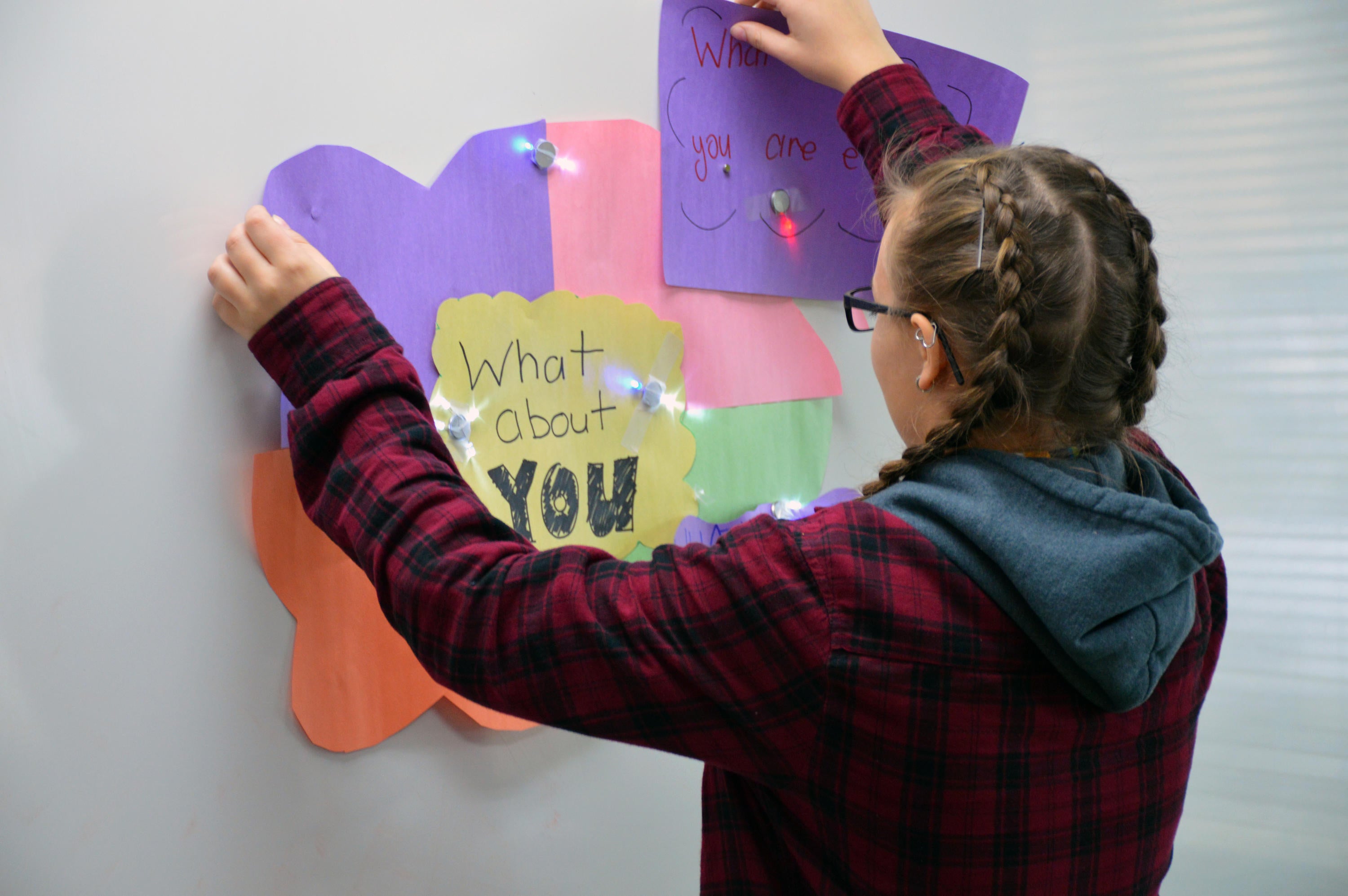
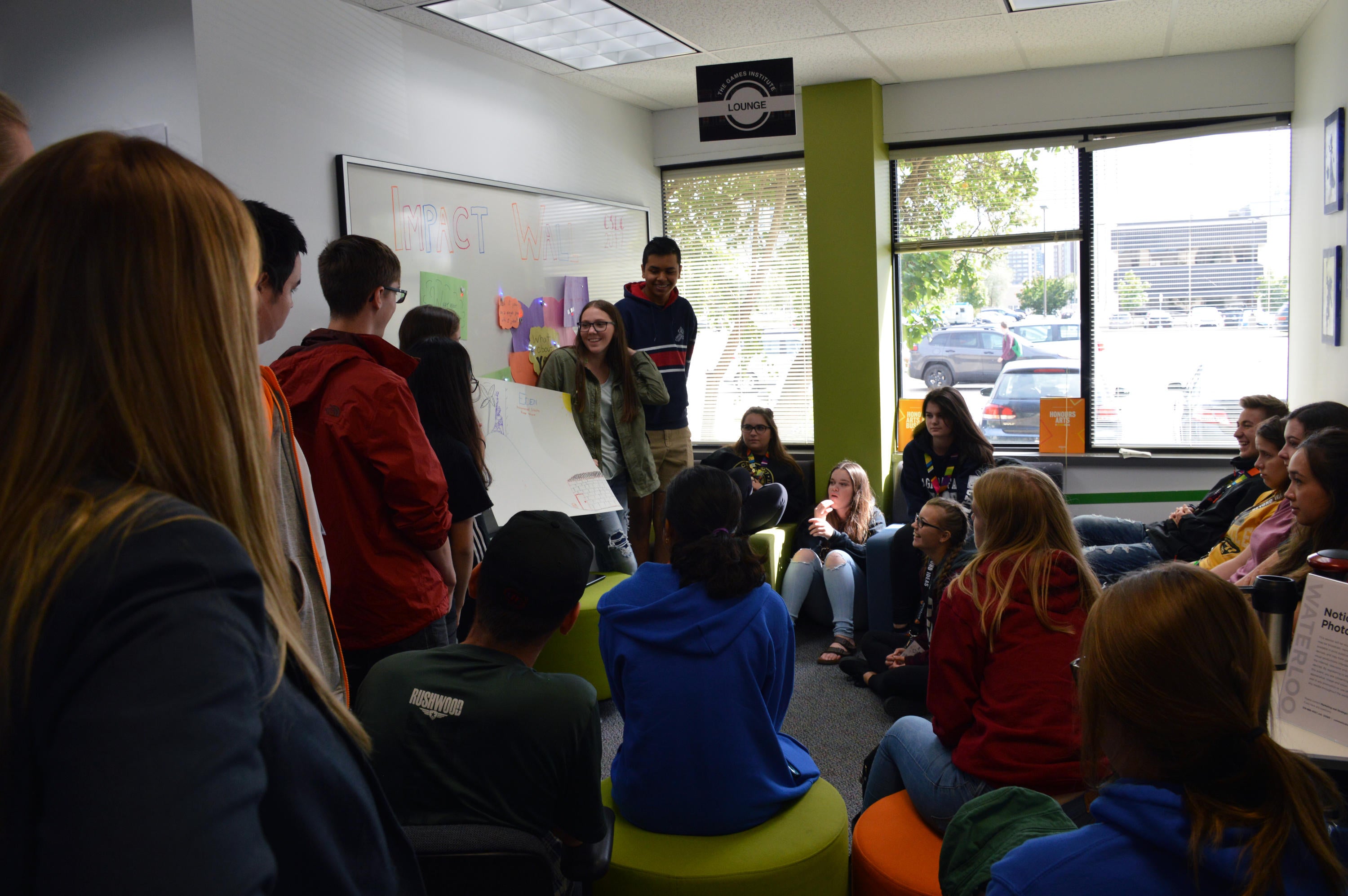
Julie Funk, a current Experimental Digital Media (XDM) student, says that the activities were based on the work and methods they use themselves in the graduate program. “We’re using objects to think with. We want the students to use interdisciplinary tools and technologies to help raise questions and explore huge social topics.” She explains that the objective is “to get students acquainted with how technology helps people to communicate and what that communication then means.”
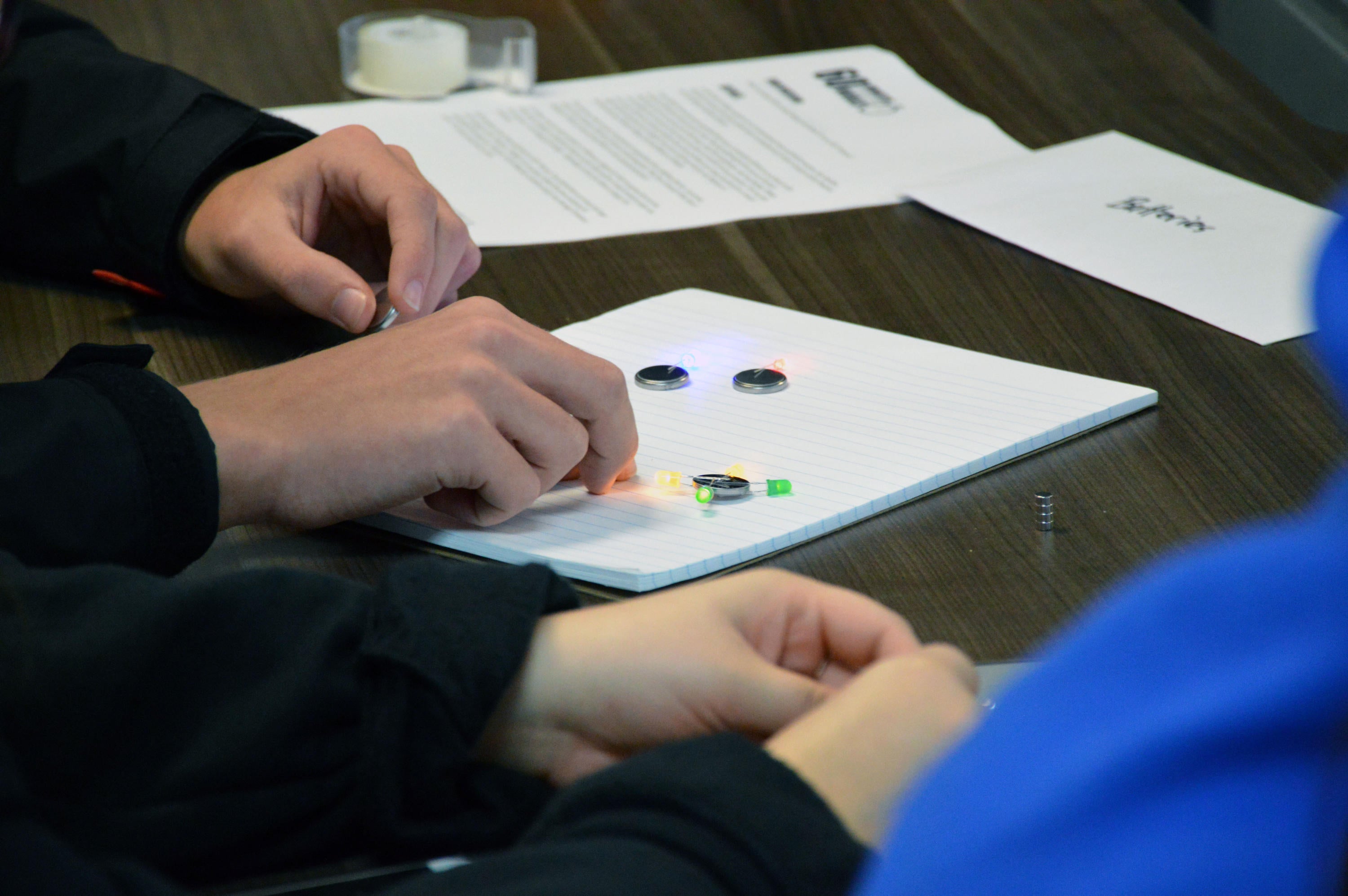
The workshop was contrived by English Advisory Council Chair Mandy Lam (OpenText) and a group of English graduate students, who were presented with an opportunity in the spring to attend a design sprint at Google. English alumnus and Council Vice-Chair, Ricardo Olenewa, invited Prof. Mehlenbacher and her class to design a potential workshop for the CSLC. They spent the day brainstorming challenges and exploring narratives that would encourage the participating high school students to engage in conversation about social change and equality. The resulting workshop was partially funded by the Ministry of Research, Innovation, and Science in conjunction with Prof. Mehlenbacher’s Early Research Award, and demonstrated the importance of Arts-based knowledge alongside STEM fields, turning STEM into STEAM.
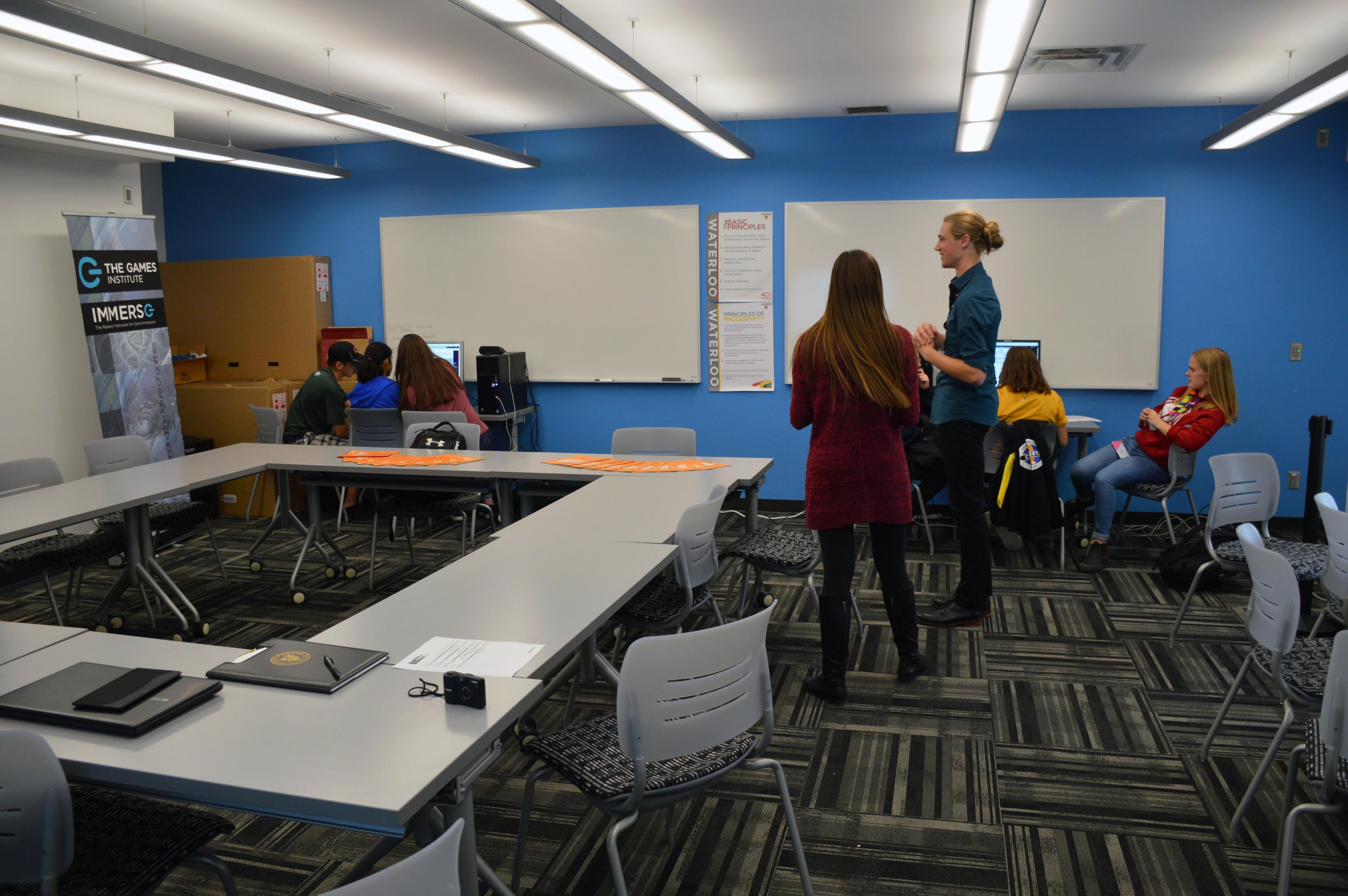
Tyler Black, a fourth year English major and research assistant to Prof. Mehlenbacher, was brought on board to help plan and facilitate the workshop. “We wanted to show that English isn’t just about reading books; there is so much more,” says Black. One of the stations has students designing a poster to communicate information in a crisis. Students are then tasked with adding an augmented reality component that would reveal a hidden audio recording. “The poster is the superficial piece of communication, but now we have the capacity to add another layer, adding more rhetoric. The information isn’t just overlapped, one piece on top of the other, but it’s intricately woven so that you have to work to dissect and understand what is being communicated.”
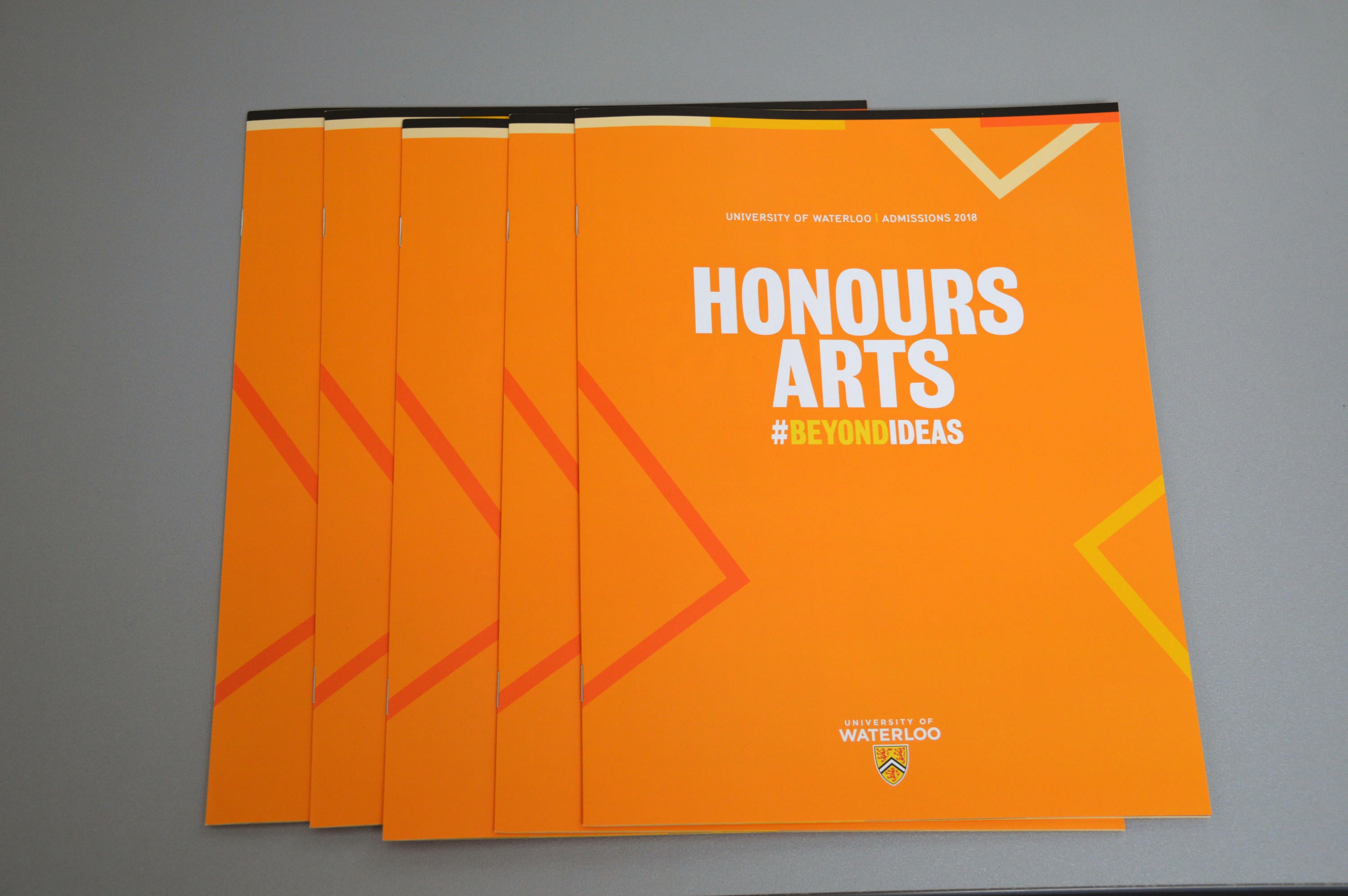
“I hope that students are engaged enough to consider Arts and to consider English. I came from a Physics background and I was initially worried about the job possibilities in English, but there is such an expansive Arts world,” explains Black. “The workshop aimed to draw students in who may not have considered Arts and make them feel welcome in our world and allow them to experience the Arts.”
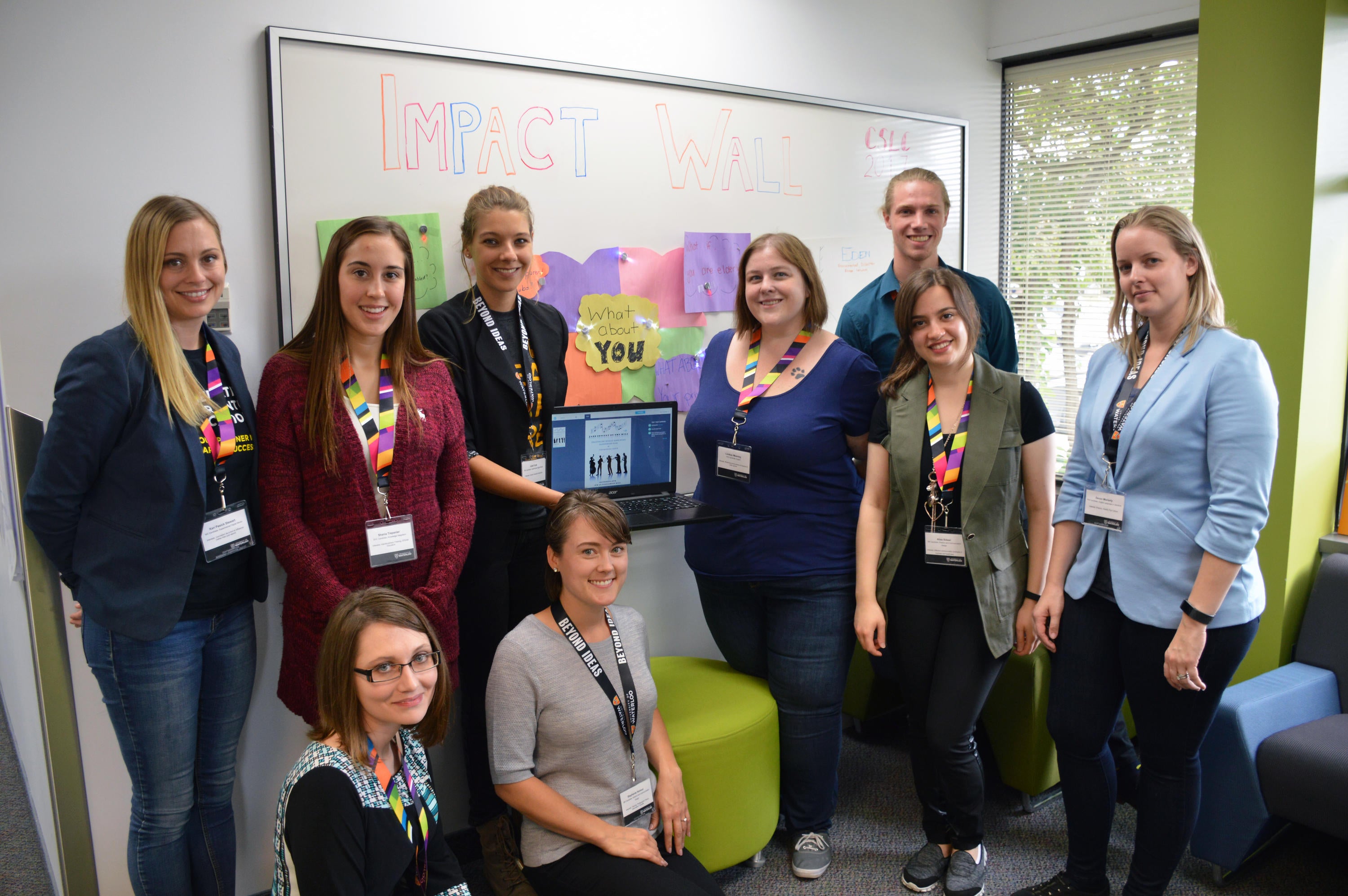
The CSLC conference brings together senior high school students from across Canada to participate in a series of workshops designed to foster innovation. This year, the conference was hosted by the Waterloo Region District School Board and Sir John A. Macdonald Secondary School and students attended 5 days of programming, including workshops from the University of Waterloo, Wilfrid Laurier University, OpenText, Shopify, and Vidyard.